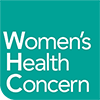For patients
Women’s Health Concern (WHC), established in 1972 and the patient arm of the BMS since 2012. WHC provides independent advice to inform and reassure women about their gynaecological, sexual and post reproductive health.
Quick links to online help and advice
- WHC factsheets and other helpful resources: evidence-based resources for women and their partners, regularly reviewed and updated.
- Menopause Wellness Hub: lay the foundations for good health through perimenopause, menopause, and the years to come.
- BMS TV: a series of short videos for both healthcare professionals and women and their partners.

Menopause: Giving you confidence for understanding and action
A series of factsheets on menopause and related issues, incorporating recommendations from both national and international guidelines.
The factsheets are evidence-based and are regularly reviewed and updated by the British Menopause Society medical advisory council, providing a trusted source of information for women and their partners.

Confidential advice by email

Our email advisory service offers confidential, evidence-based information and support.
Events calendar
WHC 35th Annual Symposium on women’s health
27 November 2025
WHC 35th Annual Symposium on women’s health - on demand
8 December 2025 - 8 February 2026
NICE menopause guideline – patient information
The National Institute for Health and Care Excellence (NICE) Guideline Menopause: identification and management (NG23) was updated for healthcare professionals on 7 November 2024.
The guideline is designed to ensure that menopause or the time leading up to it is identified by healthcare professionals as early as possible, so that you get the support you need.
“A guide to help you decide what contraception works best for your body.” More details
“An easily digestible format that will inform, reassure and guide women.” More details
Evidence-based tips, ideas and inspiration to manage your menopause. More details
Gender Language Policy
Women’s Health Concern (WHC) recognises that patients have diverse gender identities. In our publications, literature, and other printed and digital materials, WHC uses the word “woman” (and the pronouns “she” and “her”) to describe patients or individuals whose sex assigned at birth was female, whether they identify as female, male, or non-binary.
As gender language continues to evolve in the scientific and medical communities, WHC will periodically reassess this usage and will make appropriate adjustments as necessary. When describing or referencing study populations used in research, WHC will use the gender terminology reported by the study investigators.
Website last reviewed:





